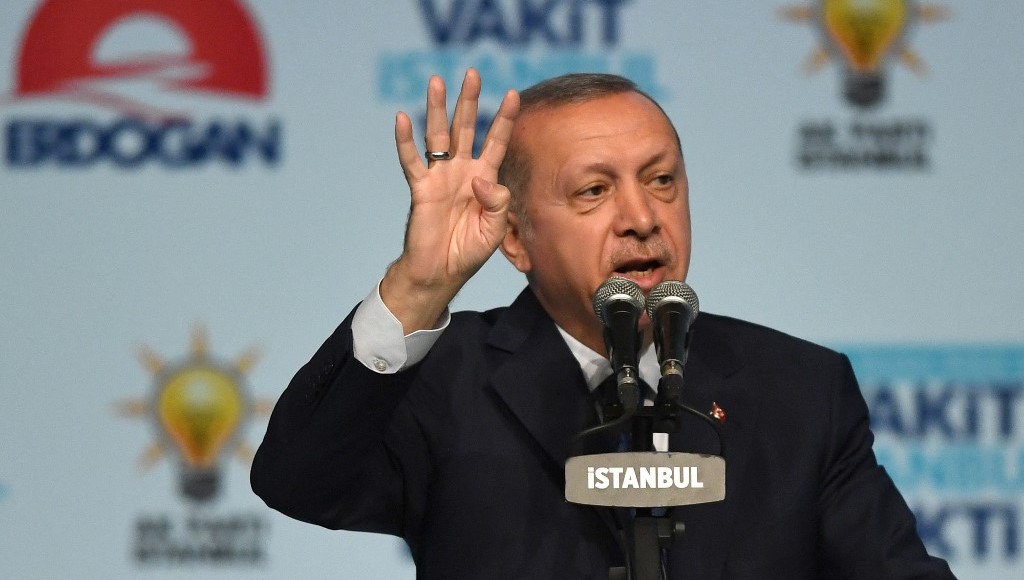Turkish President Recep Tayyip Erdoğan has turned his back on years of harsh criticism and extended an olive branch to Egyptian President Abdel Fattah el-Sisi, marking a significant turning point in diplomatic relations between Turkey and Egypt.
Erdoğan, who once labeled Sisi a “murderer, oppressor and putschist” for his role in the 2013 military coup that ousted the Muslim Brotherhood from power in Egypt, called Sisi “my brother” during a landmark visit to Cairo after an 11-year hiatus.
This diplomatic U-turn comes after a decade of strained relations following the coup, which Erdoğan vehemently opposed and often used the Rabia sign — a four-fingered gesture symbolizing solidarity with the toppled Muslim Brotherhood government — as a symbol of his government’s opposition to Sisi’s regime.
Addressing to his party's youth convention today, #Turkey's President Erdogan flashed #Rabia sign he borrowed from #Egypt Muslim Brotherhood protests, joined by party leadership in the hall.
So much for repairing ties with Egypt. pic.twitter.com/UOAg0XgROa
— Abdullah Bozkurt (@abdbozkurt) March 15, 2021
During their meeting, Erdoğan and Sisi signed a number of agreements and held a joint press conference where they focused on expanding trade and military relations and discussed the current situation in Gaza, among other regional issues.
Prior to the visit Erdoğan expressed a desire to “turn a new page” in relations with Egypt, emphasizing their shared history and cultural ties that date back over a millennium. The two leaders agreed to work towards increasing bilateral trade to $15 billion and to cooperate on investments in the defense sector.
After el-Sisi, then Egypt’s defense minister, toppled Islamist President Mohamed Morsi, a Turkish ally and member of the Muslim Brotherhood, in 2013, Erdoğan said he would never talk to anyone like Sisi
Ankara has been trying to repair its broken relations with el-Sisi since 2020.
The first signs of a thaw came in May 2021, when a Turkish delegation visited Egypt to discuss a possible normalization.
In November 2022 Erdoğan and el-Sisi shook hands in Qatar, which the Egyptian presidency heralded as a new beginning in their relations.
After Turkey was hit by two devastating earthquakes in February 2023, the two heads of state spoke on the phone.
The normalization of relations was crowned by the mutual appointment of ambassadors from both countries in July.
Mayor of İstanbul Ekrem İmamoğlu from the main opposition Republican People’s Party (CHP) has criticized President Erdoğan’s meeting with el-Sisi, describing it as a political U-turn typical of the Turkish political landscape.
“We are used to U-turns, but we will not even give a chance to those who behave like this against our country,” İmamoğlu said, underlining his commitment to a consistent stance in political dealings.
This remark comes against the backdrop of Erdoğan’s previous campaign rhetoric in which he compared İmamoğlu to Sisi in order to sway public opinion ahead of the 2019 local elections, which the current mayor won against Binali Yıldırım, the candidate of Erdoğan’s ruling Justice and Development Party (AKP).
President Erdoğan’s use of the Rabia sign at a rally in Samsun, immediately after his meeting with the Egyptian president, is a striking contradiction that has not gone unnoticed.
This gesture, symbolizing solidarity with the Muslim Brotherhood and rejection of Sisi’s seizure of power through a military coup, contrasts with his recent diplomatic engagement with Sisi and underscores a mixture of political pragmatism and ideological signaling.

